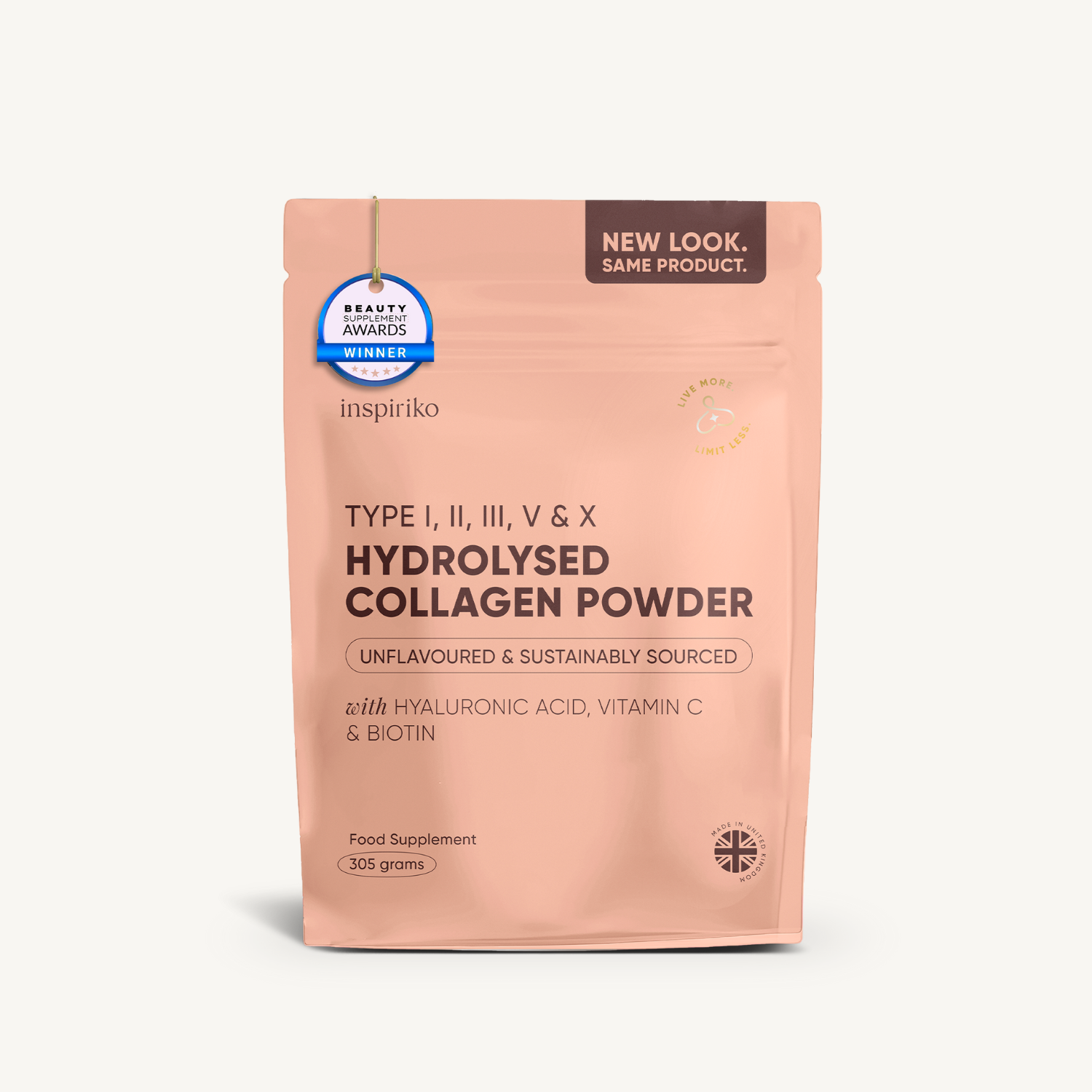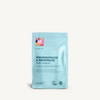Few things throw off your day (or night) like a sudden, blazing wave of heat rushing through your body for no apparent reason. If you’ve ever found yourself peeling off layers in the middle of a meeting or waking up drenched at 3am, you’re not imagining it. These are perimenopause hot flashes, and they’re one of the most common—and disruptive—symptoms women experience as hormone levels begin to shift.
While hot flashes can feel unpredictable and even overwhelming, the good news is that there are effective, natural strategies that can help cool things down. From nourishing herbal remedies to lifestyle tweaks you can start today, these are the tools that help you stay cool, calm, and in control. Let’s dive into seven powerful ways to navigate hot flashes with confidence and grace.

1- Use Phytoestrogens to Cool Down
Phytoestrogens are plant compounds that gently mimic oestrogen in the body, helping to bring some balance during perimenopause. Found in foods like flaxseeds, soy, lentils, and red clover, these natural allies, especially isoflavones and lignans, can support hormonal health and may ease symptoms like hot flashes, sleep issues, and mood swings.
While a 2023 study (1) showed a slightly increased risk of hot flashes with higher phytoestrogen intake, it also found reduced odds of vaginal dryness—especially with isoflavones. This highlights the complexity of how our bodies respond to plant oestrogens. At Inspiriko, we believe in their overall benefit, which is why our Perimenopause & Menopause Support supplement includes two types of phytoestrogens to help support your body with balance, naturally.

2- Balance Your Nervous System with Adaptogenic Herbs
Adaptogenic herbs are nature’s way of helping us stay grounded during hormonal turbulence. Known for supporting the adrenal system and improving the body’s ability to handle stress, certain adaptogens also offer targeted relief from hot flashes. Herbs like sage (Salvia officinalis), passionflower (Passiflora incarnata), and red clover (Trifolium pratense) have shown promising effects in easing perimenopausal symptoms.
A 2017 review of herbal remedies for menopause (2) highlighted sage’s ability to reduce hot flashes by acting on oestrogen receptors and calming the nervous system, although high doses may cause mild side effects. Passionflower, rich in flavonoids, showed benefit in reducing neurological symptoms and hot flashes without complications. Red clover’s isoflavones delivered mixed results—but in many cases, they reduced both the severity and frequency of hot flashes.
3- Keep Cool with Magnesium Glycinate
Magnesium plays a quiet but powerful role in regulating your body’s internal thermostat, calming the nervous system, and supporting restful sleep—all essential when hot flashes start disrupting your days and nights. One of the most effective and well-tolerated forms is magnesium glycinate, known for its superior absorption and gentle effect on the stomach.
A 2018 clinical trial (3) investigated magnesium glycinate as a non-hormonal remedy for perimenopause and menopause-related hot flashes, including those brought on by cancer treatments. The study found promising results, particularly for women seeking alternatives to hormone therapy or medications with undesirable side effects. That’s why we use Chelated Magnesium Glycinate: to give you reliable, gentle support where your body needs it most.

4- Reduce Inflammation with Omega-3-Rich Nutrition
Hot flashes aren’t just about hormones—they’re also tied to inflammation and brain signalling changes during menopause. That’s where omega-3 fatty acids, especially EPA and DHA, come into play. These essential fats, found in oily fish like salmon, walnuts, flaxseeds, and algae, help regulate inflammation, support mood balance, and may reduce the frequency of hot flashes.
A 2023 study (4) found that menopausal women who took 2 grams of EPA and DHA daily for 8 weeks experienced a reduction in both depression and hot flashes. The women tracked their symptoms through diaries and rating scales, and the improvements were significant. This research adds to the growing evidence that omega-3s aren’t just heart-healthy—they’re also hormone-supportive.
5- Sip Your Way to Comfort with Herbal Teas
Sometimes, relief can be as simple as a warm cup of herbal tea. Herbs like sage, chamomile, and lemon balm have been used for generations to soothe the body and calm the nervous system—two essential supports when hot flashes strike. These natural remedies work by helping regulate temperature, improve sleep, and reduce stress levels.
A 2016 clinical study (5) found that a daily dose of 100 mg of Salvia officinalis (sage) extract over eight weeks significantly reduced hot flash frequency in postmenopausal women. Compared to black cohosh, sage worked faster, showing reduced severity by the end of week one. This makes sage tea—or any herbal blend featuring it—a gentle, accessible option for daily symptom support.

6. Harness the Power of Breath and Movement
When your body feels out of sync, simple movement and intentional breath can be remarkably grounding. Practices like yoga, tai chi, walking, or even gentle stretching don’t just keep you physically active—they also reduce cortisol, improve circulation, and help regulate your internal thermostat.
Breathwork is equally powerful. Slow, diaphragmatic breathing can lower stress levels and ease the intensity of a hot flash in the moment. Just a few minutes of mindful breath can calm your nervous system and help you reconnect with your body. The best part? You don’t need a gym or a mat—just a quiet space and a few moments to yourself.
7. Create a Sleep Sanctuary and Prioritise Rest
Quality sleep is one of the first things to go during perimenopause, and unfortunately, poor sleep can make hot flashes worse. Creating a cool, calm, and inviting sleep environment can help break the cycle. Think breathable sheets, moisture-wicking sleepwear, and a fan by your bed to keep the temperature down. Equally important is establishing a wind-down routine. Avoid screens late at night, swap your evening glass of wine for herbal tea, and consider natural sleep support if needed.

Perimenopause hot flashes can feel unpredictable and overwhelming, but they’re not something you have to simply endure. With the right tools, you can soften their intensity, reduce their frequency, and feel more in control of your body again.
Whether it’s adding more omega-3s to your diet, sipping sage tea, or leaning on the calming support of magnesium and adaptogenic herbs, natural strategies can make a real difference. This transition isn’t a sign of losing who you are, but a chance to reconnect with your strength, your wisdom, and your needs, and we’re here to support that journey with science-backed solutions rooted in tradition and care.
FAQs
How long do perimenopause hot flashes typically last?
Can certain foods trigger hot flashes?
Do hot flashes only happen during the day?
Are there any side effects of using adaptogenic herbs for hot flashes?
How do omega-3 supplements compare to other treatments for hot flashes?
References for the blog
-
Sievert, L.L., Sharmeen, T., Begum, K., Muttukrishna, S., Chowdhury, O. and Bentley, G.R., 2023. Frequency of phytoestrogen consumption and symptoms at midlife among Bangladeshis in Bangladesh and London.
Nutrients, 15(17), p.3676. doi:10.3390/nu15173676. -
Kargozar, R., Azizi, H. and Salari, R., 2017. A review of effective herbal medicines in controlling menopausal symptoms.
Electron Physician, 9(11), pp.5826–5833. doi:10.19082/5826. -
ClinicalTrials.gov, 2018. Menopause Hormone Therapy and Cardiovascular Health (KEEPS-Cog) [online].
Available at: https://mentalhealth.networkofcare.org/Lake/CommunityResources/ClinicalTrials/Detail/NCT03564665 -
Freeman MP, Hibbeln JR, Silver M, Hirschberg AM, Wang B, Yule AM, Petrillo LF, Pascuillo E, Economou NI, Joffe H, Cohen LS, "Omega-3 fatty acids for major depressive disorder associated with the menopausal transition:
a preliminary open trial," Menopause. 2011 Mar;18(3):279-84 -
Moradi, M., Ghavami, V., Niazi, A., Seraj Shirvan, F. and Rasa, S., 2023. The effect of Salvia officinalis on hot flashes in postmenopausal women: A systematic review and meta-analysis.
International Journal of Community Based Nursing and Midwifery, 11(3), pp.169–178. doi:10.30476/IJCBNM.2023.97639.2198.







